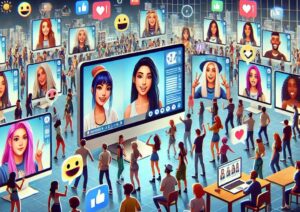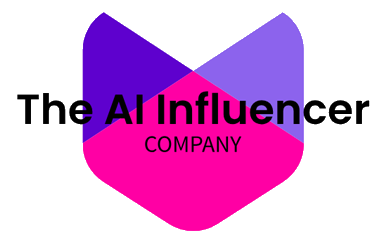The rise of artificial intelligence and big data has transformed many industries, including the world of health and wellness. One of the most exciting developments is the evolution of virtual fitness and wellness coaches that utilize AI technology to provide users with personalized guidance and support.
AI-backed virtual wellness coaches have the potential to make customized and adaptable coaching accessible and affordable for more people.
The Evolution of Virtual Coaching
The internet has enabled some degree of virtual coaching, through apps, websites and online programs that provide fitness plans or diet tips. However, these early versions lacked the sophistication to provide truly personalized guidance tailored to the individual. The instructions delivered were generalized and not based on the user’s unique needs and preferences.
In the last several years, artificial intelligence and machine learning techniques have been integrated into virtual coaching platforms, revolutionizing the level of personalization and adaptability possible. AI virtual coaches now have the ability to:
These abilities allow AI coaching platforms to interpret complex user data in order to offer guidance, recommendations, and insights tailored to each individual user.
While still an emerging field, AI-powered virtual wellness coaching is rapidly evolving to provide affordable, accessible alternatives to human experts.
Benefits of AI-Powered Virtual Coaching

AI-backed virtual wellness coaches provide a number of significant advantages compared to traditional in-person coaching:
Accessibility
The ability to access coaching anytime, anywhere is a major benefit of virtual platforms. An AI coach is available 24/7 through an app on your smartphone or device. This removes geographic restrictions and scheduling challenges involved with in-person appointments.
Users can get coaching at home, at work, while traveling – whenever they need some motivation or guidance. The convenience provides more opportunities to integrate positive wellness habits into daily life.
Affordability
Wellness coaching from personal trainers, nutritionists, and therapists can be prohibitively expensive for many to access on an ongoing basis. AI virtual coaches are significantly more affordable, often costing just a monthly subscription or one-time purchase fee.
By automating guidance through AI, costs are greatly reduced compared to human-provided services. This makes personalized wellness coaching accessible to a broader range of users.
Personalization
A major advantage of AI is its ability to interpret user data to correlations and insights. An AI coach gathers relevant data through things like journaling, wearable devices, questionnaires and more.
It uses this data to create a detailed user model and tailor all guidance and recommendations to that individual specifically. This personalization helps ensure users are getting the optimal workout routines, diet suggestions, lifestyle recommendations for their needs.
Adaptability
An AI coach adapts over time rather than providing a fixed, generic plan. As the user’s behaviors, preferences and outcomes change, the AI model updates to continuously refine and optimize the coaching.
If the user gets bored doing the same workout, struggles with a dietary restriction, or has changes in health conditions, the virtual coach gets smarter at adjusting appropriately. This adaptability creates an experience tailored to the user’s dynamic needs.
Accountability
For many people, staying on track with health and wellness goals requires ongoing accountability. Virtual coaches help keep users accountable through progress tracking, reminders and motivational messaging.
The always-available nature makes it easy for users to report in with their progress. Data from wearable integrations gives coaches real-time insight into activity levels. These features help drive progress milestones and encourage consistency.
For many, having an AI coach in their pocket that knows their body, lifestyle, and goals can be life-changing. It provides personalized wellness guidance conveniently, privately, and inexpensively.
Key Features of AI-Backed Wellness Coaches
Some of the most important capabilities of AI-powered virtual wellness coaches include:
Natural Language Processing
NLP allows for natural conversational interactions between the user and coach. The AI can understand context and intent from normal human speech and respond appropriately.
Users can communicate their needs, ask questions, describe how they feel, etc. and the coach will provide motivating responses and recommend actions. This natural back-and-forth helps build rapport and a relationship with the AI.
Data Collection & Analytics
A wide range of user data is collected to inform the AI coach’s guidance including:
- Journal/mood logging
- Wearable device data like heart rate, activity tracking
- Food/nutrition tracking
- Biometrics e.g. weight, body fat percentage
- Lifestyle questionnaires
- Interaction data
Advanced analytics process this heterogeneous data to identify patterns, trends and correlations that provide insights into the user’s habits, motivations and health conditions.
The continuously updated data and analytics allow the AI model to refine guidance for optimal personalization.
Machine Learning
The algorithms powering the coach’s intelligence utilize machine learning techniques to iteratively improve their user modeling and coaching recommendations. Based on user feedback and quantified outcomes, the AI determines which aspects of its guidance are working versus need to be adjusted.
Over time, this refinement of the ML model enables ultra-personalized coaching for each user.
Wearable & App Integrations
The AI coach gains comprehensive access to diverse source data for deeper personalization by connecting with wearables like FitBit, Apple Watch and other health apps. It provides a holistic view of all the factors impacting the user’s health and wellbeing, beyond just what the coaching app collects. The AI can analyze patterns across these varied data sources.
Sentiment Analysis
Through analyzing written and spoken language, the coach can detect emotional states and motivation levels of users. This lets the AI provide appropriate empathetic responses, troubleshoot issues impeding progress, and determine the right messaging or recommendations to boost the user’s mindset and morale when they feel down.
This “emotional intelligence” helps build a more human relationship between user and coach.
These AI capabilities combine to create a virtual coaching experience that can compete with, and in some ways surpass, human coaching through continuously optimized and highly personalized guidance.
Examples of Leading AI Wellness Coaches
A variety of startups and tech firms now offer virtual wellness coaching apps and services, including:
- Woebot – Chatbot that uses CBT techniques to support mental health through conversations.
- Pager – Focuses on nutrition coaching powered by AI and health professionals.
- LifeBeam – Integrates a virtual coach into a smart hat and visor for outdoor athletes.
- Wellpepper – Produces “prescription digital therapeutics” for patients managing chronic conditions.
Key differentiators include the types of support offered, integrations with other apps and devices, and the blend of AI with human professionals. As the technology matures, more comprehensive virtual wellness coaches will emerge.
The Future of AI in Wellness Coaching
It’s expected that in the next 5-10 years, AI-powered virtual wellness coaches will become more widespread and sophisticated. These includes:
- Coaching across different aspects will become more robust and accessible.
- Predictive and preventative guidance based on personal health risks is more accurate.
- Virtual coaches will be better as standard components of healthcare plans.
- Semi-autonomous coaching without ongoing human input required will be more common.
However, it will be important to balance personalized guidance with user privacy and autonomy. The role of virtual wellness coaches is to augment our lives, not control them.
Final Thoughts
AI-powered virtual wellness coaches are transforming accessibility to personalized health and wellness support. These AI coaches provide 24/7 availability, increased affordability, and continuously optimized guidance tailored to each user’s unique needs and behaviors. Key capabilities like machine learning, sentiment analysis and synergies with wearable data are driving a new paradigm in individualized wellness coaching.
While still an emerging field, virtual wellness coaching platforms enabled by artificial intelligence have vast potential to help users achieve their fitness, nutrition, mental health and lifestyle goals through highly customized digital guidance.
As the technology advances, these AI coaches will become integral tools that empower more people to take control of their health in a personalized way. The democratization of wellness coaching is an exciting milestone in the evolution of digital health.




